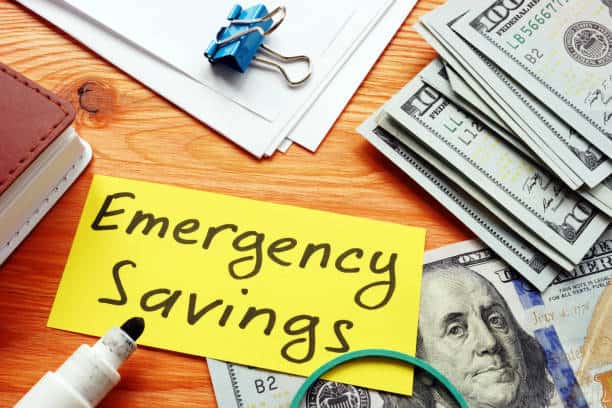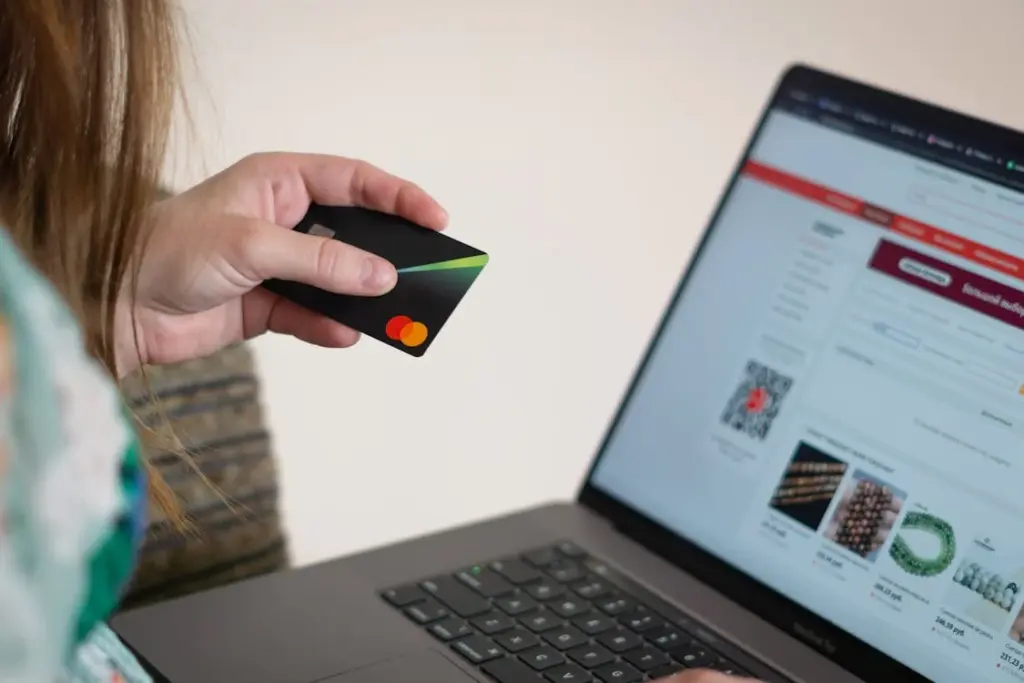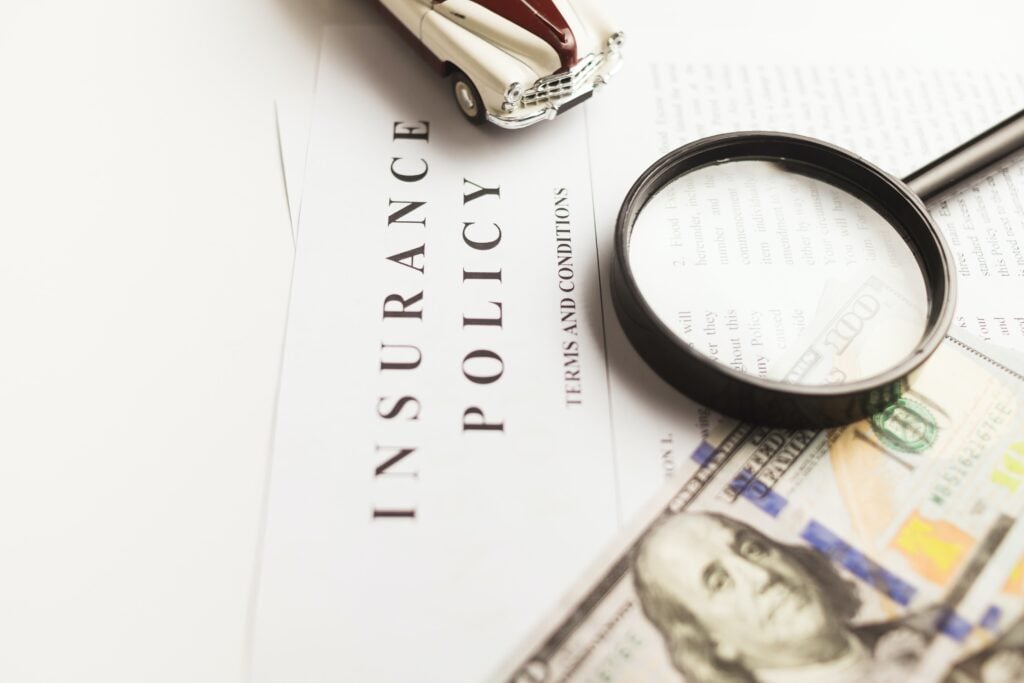 Image Credit: DepositPhotos
Image Credit: DepositPhotos
The constant worry of making ends meet can keep you stuck in a cycle where saving for the future seems impossible. But what if you could break free from this cycle with some practical, actionable changes?
Does it feel like your hard-earned money disappears the moment you get it? If so, you’re not alone. Approximately 60% of Americans live paycheck to paycheck, constantly battling financial stress.
I know the financial strain of living paycheck to paycheck. Many individuals face the stress of seeing their bank balances drop too low or stay the same for months. The positive side is that I’ve identified effective strategies to help manage and improve on this.
In this article, you’ll learn proven steps to help you take control of your finances, covering tracking expenses, building an emergency fund, and even tips on cutting back unnecessary costs.
Ready to make the changes that will lead you toward financial stability? What’s the first step you’re willing to try today?
Track Every Expense


Understanding where your money is going is the first step in regaining control of your finances. Many people living paycheck to paycheck don’t realize how small, seemingly insignificant expenses can add up.
Begin by tracking every single purchase. Use a notebook, an app, or a simple spreadsheet, whatever works for you. The goal is to see your spending patterns clearly. Once you have a few weeks of data, look for areas where you might be overspending.
Do you buy coffee every morning or order takeout a few times a week? These costs add up over time. With clear insight into your spending, you can start making informed decisions about where to cut back and save money.
Broke People Always Seem To Waste Money On These 15 Expenses
Create a Realistic Budget


After tracking your expenses, the next step is creating a budget. Many people find this part intimidating, but it’s essential to outline exactly how much you’re earning and spending.
Earn Free Gift Cards
Swagbucks: Coupons, Paid Online Surveys & Free Gift Cards
Do you want to make money online simply by searching, shopping, surveys, or playing games?
Pros:
- Account creation is free
- Big bonus on sign up
- Many ways to earn free money
- Mobile-friendly rewards site and apps
- Simple to complete tasks
- $10 to sign up
Cons:
- Not exactly passive income
- Redeeming SB points sometimes takes awhile
- It isn’t easy to qualify for all surveys
- Customer service isn’t the greatest (or fastest)


A budget helps you prioritize necessary expenses like rent, groceries, and bills while highlighting areas that could be trimmed. When making your budget, be honest with yourself about your needs and wants.
While it’s tempting to allocate money to things you enjoy, focus on the essentials first. As you begin to follow your budget, revisit it regularly. Your financial situation may change, so keeping the budget flexible will help ensure you’re always on top of your finances.
What Is a Budget? How To Budget Explained Simply
Build an Emergency Fund


Even when you’re living paycheck to paycheck, setting aside a little money each month can go a long way. Having an emergency fund acts as a financial cushion for unexpected expenses like car repairs, medical bills, or job loss.
While it may seem impossible to save when money is tight, start small. You don’t need thousands of dollars right away. Start with a goal of saving $500, then work your way up. Automate your savings by transferring a small amount to a savings account each payday.
Over time, these small contributions will add up, and you’ll have a financial buffer to protect you when emergencies arise.
Is the Economy Failing Us? 20 Financial Moves to Survive the Next Recession
Pay Down High-Interest Debt


Debt, especially high-interest debt like credit cards, can trap you in a paycheck-to-paycheck lifestyle. Paying off these balances should be a priority. Every month you carry over a balance, interest compounds, making it harder to pay down the principal.
Focus on eliminating high-interest debts first. Consider using strategies like the snowball method, where you pay off the smallest debts first, or the avalanche method, where you target the debts with the highest interest rates.
Reducing or eliminating these debts will free up more money each month and reduce financial stress.
How to Get Out of Debt Quickly
Avoid Lifestyle Creep


Lifestyle creep happens when your income increases, but your spending rises to match it. Instead of saving or paying off debt, you might buy a new car or upgrade your wardrobe, which keeps you in the same financial position.
It’s important to resist the urge to spend more as you earn more. Whenever you get a raise, promotion, or bonus, commit to putting the extra income toward savings, debt repayment, or long-term financial goals.
By keeping your expenses steady while increasing your income, you’ll have a better chance of escaping the paycheck-to-paycheck cycle.
20 Things Millionaires Refuse to Buy, Despite Having Money
Negotiate Bills and Services


Many people don’t realize that everyday bills and services are often negotiable. Contact your service providers for cable, internet, insurance, or even utilities to ask if they offer lower rates or discounts.
In some cases, simply mentioning that you’re considering switching to a competitor can prompt a discount offer. Also, reviewing your subscriptions is another way to find savings.
Are you paying for streaming services or gym memberships you rarely use? Cutting or pausing these can free up more cash for essentials or savings.
Tired of Paying Monopolies Too Much? Here’s How to Slash Your Utility Bills
Seek Side Income


Adding an extra income stream, even temporarily, can give you the financial boost you need. Even if it’s just a part-time job, freelance work, or selling unused items, additional income helps break the paycheck-to-paycheck cycle.
Consider what skills or hobbies you could monetize, such as tutoring, babysitting, or doing odd jobs online. The extra money can be used to pay down debt, build your emergency fund, or invest in long-term financial goals.
While it may require sacrificing some free time, the temporary effort can make a big difference in your financial health.
Side Hustle Guide For Beginners: How To Earn Money On The Side (With Video)
Automate Savings and Payments


Automating your finances is one of the easiest ways to stay on track. Set up automatic transfers to a savings account so you’re consistently putting money aside. Similarly, automate bill payments to avoid late fees, which can quickly add up and set you back financially.
Automation reduces the risk of overspending and ensures you’re always making progress on your financial goals. With fewer decisions to make, you’re less likely to spend impulsively or miss payment deadlines.
25 Sneaky Fees Companies Hide From You (And How You Can Dodge Them)


There are plenty of free tools and apps available to help you manage your finances better. These tools can give you a clearer picture of your financial health starting with budgeting apps to savings trackers. Look for apps that connect to your bank accounts and credit cards to track spending in real-time.
Using financial tools allows you to automate parts of your financial life and stay organized. Many of these apps also provide insights into your spending habits and can help you identify areas where you could save more money.
🙋♀️If you like what you are reading, then click like and subscribe to my newsletter. We share tips to waste less time and money.
Evaluate and Cut Unnecessary Expenses


When living paycheck to paycheck, it’s easy to overlook small expenses. Subscription services, dining out, or unnecessary shopping can eat into your budget without you realizing. Take time to evaluate all your recurring expenses and see what you can cut out, even temporarily.
Once you’ve identified these areas, redirect the money toward paying down debt or building savings. By cutting unnecessary expenses, you’ll free up more money to cover essential costs and break the cycle of paycheck-to-paycheck living.
17 Financial Traps You Should Avoid If You’re Over 50


Reevaluate Your Housing Costs


Housing is often the largest expense for most people. If your rent or mortgage is eating up a large portion of your income, consider reevaluating your housing situation. Could you downsize to a more affordable home, move to a less expensive area, or find a roommate to share costs?
While moving might not be ideal for everyone, it’s worth considering if high housing costs are keeping you stuck financially. Reducing your housing expenses can free up significant funds each month, helping you save or pay off debt faster.
19 Ways to Slash Your Monthly Mortgage Payments (Some Are Smart)
Build New Habits Around Spending


Changing your relationship with money often starts with building better habits. Simple changes, like meal planning, using cash instead of credit, or waiting 24 hours before making non-essential purchases, can help you be more mindful of your spending.
By adopting small, intentional habits, you can reduce impulse purchases and better control your finances. Over time, these changes will help you live within your means and save for larger financial goals.
13 Pieces of Horrible Financial Advice (That Most People Still Believe)
Cook More at Home


Eating out can be expensive, and when you’re living paycheck to paycheck, these small indulgences add up. Cooking at home is a cost-effective alternative, and it doesn’t have to be complicated. Plan your meals, make a shopping list, and cook in batches to save time.
Not only will cooking at home help you save money, but it can also lead to healthier eating habits. By preparing meals yourself, you can control portion sizes and ingredients, leading to both financial and physical well-being.
Manage Meals Easier With These Meal-Prepping Tips, From A Mom
Cut Back on Credit Card Usage


Credit cards can be a useful financial tool, but relying on them too much can lead to high-interest debt. If you’re frequently using credit cards to cover expenses or make purchases that aren’t in your budget, it’s time to cut back.
Try to limit credit card use to planned purchases or emergencies. By using credit cards less, you’ll avoid adding to your debt and the interest charges that come with it.
Focus instead on paying with cash or debit to keep your spending in check and reduce financial stress.
20 Credit Card Mistakes Many People Make (And How to Fix Them)
Reevaluate Insurance Policies


Many people stick with the same insurance policies year after year without realizing they may be overpaying. Shop around to see if you can find a better deal even if it’s in cars, health, or home insurance.
You may be able to get the same coverage for a lower premium, especially if your situation has changed since you first signed up. Reducing your insurance costs is a relatively painless way to save money each month.
Be sure to compare multiple providers and ask about discounts for things like bundling policies or safe driving records.
Types of Insurance Policies Everyone Should Consider
Plan for Large Expenses


Living paycheck to paycheck often means that large expenses, like car repairs or medical bills, come as a shock. Planning for these expenses by setting aside a small amount each month can prevent them from derailing your finances.
Look ahead at any predictable costs, such as holidays, birthdays, or annual bills, and create a sinking fund for these expenses. By planning ahead, you’ll be better prepared to handle large costs when they arise.
This reduces the need to rely on credit cards or loans, keeping your finances on track.
🙋♀️If you like what you are reading, then click like and subscribe to my newsletter. We share tips to waste less time and money.
Educate Yourself About Personal Finance


Financial education is one of the most powerful tools you can use to break the paycheck-to-paycheck cycle. The more you understand about budgeting, saving, and investing, the better equipped you’ll be to make informed decisions about your money.
There are many free resources available, including blogs, podcasts, and online courses, that can help you improve your financial literacy. Investing time in learning about personal finance will pay off in the long run, giving you the confidence to take control of your money.
18 Ways to Know You’re Financially Ready for Retirement: Be Secure in Your 60s
Separate Needs From Wants


One of the hardest challenges when living paycheck to paycheck is distinguishing between needs and wants. It’s easy to justify unnecessary spending by convincing yourself that something is essential.
Take a step back and evaluate each purchase. Ask yourself if it’s something you truly need, or if it’s a want that could be postponed or avoided altogether. Being mindful of this distinction can help you make better financial choices.
Prioritizing needs over wants will ensure that you’re spending money on what truly matters while avoiding impulse purchases that may keep you stuck financially.
Declutter Now: 39 Things You Need to Get Rid of Today
Talk About Money With Family


Money can be a difficult topic to discuss, but it’s important to communicate openly with your family about finances. If you’re living paycheck to paycheck, you may need to set new financial boundaries or cut back on spending as a family.
Discuss your financial goals and why it’s important to work together to achieve them. Having open conversations about money can help reduce stress and ensure that everyone is on the same page.
It’s also an opportunity to teach children about financial responsibility and encourage healthy money habits.
20 Retirement Mistakes That Could Wipe Out Your Savings
Set Small, Achievable Financial Goals


Breaking the paycheck-to-paycheck cycle can feel overwhelming, but setting small, achievable goals can make the process more manageable. Even if it’s simply saving $50 a month or paying off one credit card, start with realistic targets.
Each goal you accomplish will build momentum and give you the confidence to tackle larger financial challenges. Remember, progress doesn’t happen overnight. Celebrate your small wins along the way and stay committed to improving your financial situation step by step.
20 Reasons Why Many Americans No Longer Believe They Can Retire at 65
Start Building Financial Freedom Today


Living paycheck to paycheck doesn’t have to be your reality forever. By taking small, practical steps like tracking your spending, creating a budget, and building a modest emergency fund, you can gradually shift toward financial freedom.
The key is to start now and stay committed. As each new habit becomes second nature, you’ll find yourself in a much stronger financial position, with less stress and more control over your future.
Keep pushing forward, and soon, you’ll see the results you’ve been striving for.
🙋♀️If you like what you just read, then subscribe to my newsletter and follow us on YouTube.👈
AI was used for light editing, formatting, and readability. But a human (me!) wrote and edited this.




